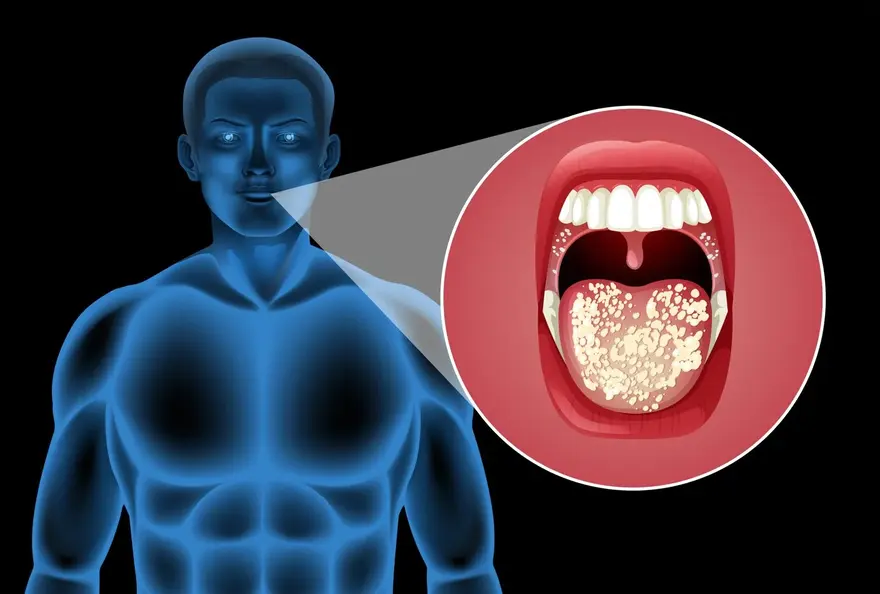Preventive Healthcare
Exploring Rectal Prolapse: Symptoms, Causes, and Treatment
2255 Views
0

Rectal prolapse can be uncomfortable to deal with; therefore, understanding the symptoms and complications associated with it is necessary. This guide discusses rectal prolapse in detail, offering insights on treatment options and prevention strategies to help you navigate its challenges effectively.
What is rectal prolapse?
Rectal prolapse is a condition which occurs when your rectum, the last part of the large intestine, protrudes through your anus. This can lead to discomfort, pain, and difficulty with bowel movements. Rectal prolapse types can include partial, complete, internal, or external, depending on the anatomy of the prolapse.
What causes rectal prolapse?
Rectal prolapse is primarily caused by weakened pelvic floor muscles and tissues that support your rectum. Chronic straining during bowel movements due to constipation, long-term diarrhoea, ageing, childbirth, or previous pelvic surgery are common rectal prolapse causes. Other factors include neurological conditions, genetic predisposition, and certain connective tissue disorders.
What does rectal prolapse look like?
Rectal prolapse may look like a reddish or pinkish mass emerging from your anus, typically when exerting pressure during bowel movements. This mass may retract back into the anus or remain visible externally.
What are the signs or symptoms of rectal prolapse?
Common rectal prolapse symptoms include:
- The most noticeable rectal prolapse symptom is the protrusion of your rectum through your anus during bowel movements or even when standing or walking.
- You may experience discomfort, pain, or a feeling of fullness in your rectum or anus.
- Rectal prolapse can lead to difficulty with your bowel movements, including straining or incomplete evacuation.
- You may experience leakage of faeces or mucus from the protruding rectum.
- The exposed rectal tissue can become irritated, leading to itching, burning, or bleeding.
- You may feel increased pressure or heaviness in your pelvic area, especially when standing or sitting for a long time.
How is rectal prolapse diagnosed?
Rectal Prolapse diagnosis typically involves:
- Physical examination: A healthcare provider will perform a physical examination, including a visual inspection of your anus and rectum, to look for signs of prolapse.
- Digital rectal exam: This involves inserting a gloved, lubricated finger into the rectum to assess the extent of prolapse and check for any abnormalities.
- Colonoscopy or sigmoidoscopy: These procedures allow for a more detailed examination of the rectum and colon to rule out other potential causes of rectal prolapse symptoms.
- Imaging tests: In some cases, imaging tests such as MRI or defecography may be ordered to evaluate pelvic floor function and assess the severity of prolapse.
- Anorectal manometry: This test measures pressure and function in the rectum and anal sphincters, helping to assess bowel function and pelvic floor coordination.
Will rectal prolapse go away on its own?
Rectal prolapse typically does not resolve on its own and often requires medical intervention, lifestyle changes, pelvic floor exercises, or surgery, depending on the severity of the condition.
What happens if rectal prolapse is left untreated?
If left untreated, rectal prolapse can cause chronic pain, fecal incontinence, and difficulty passing stool. In severe cases, tissue damage, ulceration and even strangulation of prolapsed tissue can occur, requiring emergency surgery to prevent complications such as tissue necrosis.
How do you fix rectal prolapse?
Rectal prolapse treatments vary depending on the severity of the condition and individual factors. They include:
Abdominal approach (Rectopexy)
Rectopexy is a surgical procedure commonly used for rectal prolapse treatment, particularly when the prolapse is significant or associated with other pelvic floor disorders.
Rectopexy via the abdominal approach, i.e. through an incision in the belly, is often effective in providing long-term relief from rectal prolapse symptoms. Compared to some other surgical techniques, it lowers the risk of recurrence.
Rectal Approach (Perineal)
The perineal approach, also known as perineal recto sigmoidectomy or Delorme's procedure, is another surgical option for rectal prolapse therapies. Unlike rectopexy, which is performed through an abdominal incision, the perineal approach involves accessing the rectum through the area between the anus and the genitalia (the perineum).
The perineal approach is often preferred for patients who are not candidates for abdominal surgery due to factors such as advanced age, poor overall health, or previous abdominal surgeries.
Other options for rectal prolapse therapies include:
Conservative management
- Dietary changes to regulate bowel movements.
- Pelvic floor exercises to strengthen muscles.
- Medications to alleviate constipation or diarrhoea.
Medical procedures
- Manual reduction: Non-surgical manipulation to push the prolapse back into place.
- Rubber band ligation: Placing bands around the prolapsed tissue to cut off its blood supply, causing it to shrink and fall off.
- Injection sclerotherapy: Injecting a chemical solution into the prolapsed tissue to shrink it.
- Biofeedback therapy: Training to improve bowel control and pelvic floor function.
What are the possible risks or complications of rectal prolapse surgery?
- Infection: Surgical procedures carry a risk of infection at the incision site or within the pelvic cavity.
- Bleeding: Post-operative bleeding can occur, either externally from the surgical site or internally within the abdomen or pelvis.
- Anaesthesia complications: Reactions to anaesthesia, though rare, can include respiratory problems, allergic reactions, or adverse drug interactions.
- Urinary problems: Surgery near the bladder or urethra can lead to urinary retention, incontinence, or urinary tract infections.
- Bowel dysfunction: Following rectal prolapse surgery, you may experience changes in bowel habits, including constipation or diarrhoea.
- Recurrence: Despite surgical intervention, rectal prolapse may recur in some cases, necessitating further treatment.
How can I prevent rectal prolapse?
- Obesity can increase the risk of rectal prolapse, so aim to maintain a healthy weight through a balanced diet and regular exercise
- Avoid straining during bowel movements
- Address constipation promptly with dietary changes, fibre supplements, or stool softeners
- Strengthen pelvic floor muscles with exercises like Kegels to help support the rectum and prevent prolapse
- If you have a chronic cough, seek treatment to reduce strain on the pelvic floor and rectum
- Avoid heavy lifting.
What is the outlook if I have rectal prolapse?
While surgery generally offers favourable outcomes for rectal prolapse, you may experience ongoing symptoms like constipation or incomplete bowel movements. With appropriate medical management or surgery, many people experience significant improvement in symptoms and quality of life, with a low risk of recurrence.
Conclusion
In conclusion, rectal prolapse is a condition that can significantly impact your daily life. Still, with prompt diagnosis, appropriate treatment and lifestyle modifications, you can find relief and achieve improved long-term outcomes. If you or your family members want to protect yourself from rectal prolapse and its associated complications, get your blood and stool regularly tested at Metropolis Healthcare for timely diagnosis. Metropolis Healthcare strives to provide best-in-class diagnostic service that is not only reliable but also pocket-friendly, executed by the best phlebotomists, and trusted by the best doctors across the country. Hurry up and book your test today!























 WhatsApp
WhatsApp